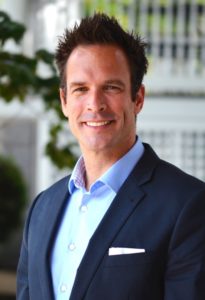
Clark University has appointed Professor Edward R. Carr as director of its Department of International Development, Community and Environment (IDCE).
Professor Carr comes to Clark from the Department of Geography at the University of South Carolina, where he served as the associate director of the Walker Institute for International and Area Studies and director of the Humanitarian Response and Development Lab (HURDL), an entity that brought academic rigor and cutting-edge development thinking and research to the development policy and implementation world. HURDL currently has projects in Mali, Senegal, Zambia and Ghana, and policy and implementation projects with a global remit. Professor Carr brings HURDL with him to Clark; the lab will reside in the George Perkins Marsh Institute.
“It is an honor to be asked to lead a program with such a rich history, at such an exciting time for both IDCE and the larger Clark community,” wrote Professor Carr. “The program uniquely links the various aspects of my research identity within a single department, and further supports those interests through the work of the Graduate School of Geography, the George Perkins Marsh Institute, and the Graduate School of Management.”
Professor Carr previously served as an American Association for the Advancement of Science (AAAS) fellow, and worked at the U.S. Agency for International Development. In this role, he was the first climate change coordinator for the Bureau for Democracy, Conflict and Humanitarian Assistance, and later served as an adviser on the Climate Change Team in the Bureau for Economic Growth, Education and the Environment. Professor Carr has also served as a consultant to the World Bank on issues of adaptation and development.
For more than 15 years, Professor Carr has worked in rural sub-Saharan Africa on issues of globalization, development and environmental change, living among and working with various rural communities. He is the author of more than 30 publications on issues of development, adaptation to climate change, and the changing global environment. He served as the lead author of two global environmental assessments (the Millennium Ecosystem Assessment and The United Nations Environment Programme’s Fourth Global Environment Outlook) and was the review editor for a chapter of the Intergovernmental Panel on Climate Change’s Fifth Assessment Report.
Professor Carr’s research has been supported by the National Science Foundation, the National Geographic Society, the Red Cross/Red Crescent Climate Centre, and others. Professor Carr holds a bachelor’s degree with high distinction from the University of Virginia; a master’s and Ph.D. in anthropology from Syracuse University, and a Ph.D. in geography from the University of Kentucky.
Clark’s IDCE department is a community of scholars and practitioners dedicated to environmental sustainability, social justice, and economic well-being. The Department focuses on major forces of social change: grass roots initiatives, social movements, government policy, market approaches, entrepreneurship, technological innovation, individual action, and education.
Professor Carr maintains a blog and can be found on Twitter: @edwardrcarr.
Founded in 1887 in Worcester, Massachusetts, Clark University is a liberal arts-based research university addressing social and human imperatives on a global scale. Nationally renowned as a college that changes lives, Clark is emerging as a transformative force in higher education today. LEEP (Liberal Education and Effective Practice) is Clark’s pioneering model of education that combines a robust liberal arts curriculum with life-changing world and workplace experiences. Clark’s faculty and students work across boundaries to develop solutions to complex challenges in the natural sciences, psychology, geography, management, urban education, Holocaust and genocide studies, environmental studies, and international development and social change. The Clark educational experience embodies the University’s motto: Challenge Convention. Change Our World.


